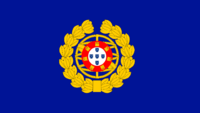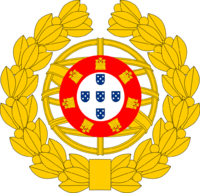Quincy
This article is incomplete because it is pending further input from participants, or it is a work-in-progress by one author. Please comment on this article's talk page to share your input, comments and questions. Note: To contribute to this article, you may need to seek help from the author(s) of this page. |
| Message from The United States Federal Government: This article is undergoing heavy construction; if certain details are missing, they shall be added at a suitable date. |
The United States of Quincy Les États-Unis de Quincey (French) | |
|---|---|
| Motto: God Save Quincy, Our Homeland | |
| Anthem: When Johnny Comes Marching Home | |
| Status | Sovereign State |
| Capital | Boston 42.3601° N, 71.0589° W |
| Largest city | Boston |
| Official languages | None |
| Recognised national languages | English, French |
| Recognised regional languages | Haudenosaunee |
| Ethnic groups | Quincois, Quebecois, Canadian, Haudenosaunee, etc |
| Demonym(s) | Quincois |
| Government | Federal Republic |
• President | Arnold Landon |
• Vice President | Pense Wells |
• Speaker of the House | Miranda Huron |
• Chief Justice | Tim Gerald |
| Legislature | Congress of the United States of Quincy (Congress) |
| Senate | |
| House of Representatives | |
| Independence from the United States of America | |
• Independence and dissolution of the United States of America | July 2nd, 1786 |
• Quinque-Publica Pax | 1796-1860 |
• Continental War | 1860-1865 |
• First Quintus Postbellum | 1865-1916 |
• World War I involvement | 1916-1918 |
• Second Quintus Postbellum | 1919-1931 |
• Jacques Street Crash | October 25th-December 15th, 1931 |
• August 17th Bombings | August 17th, 1940 |
• Entry into World War II | August 17th, 1940, 9:30 A.M. Eastern Standard Time |
• Cold War | 1945-1990 |
• Reclassification to United States | September 29, 2033 |
| Area | |
• Total | 138,808 km2 (53,594 sq mi) (83rd) |
• Water (%) | 47.38 |
| Population | |
• 2030 estimate | 9.6 million (122nd) |
• 1790 census | 1.45 million |
• Density | 543.9/km2 (1,408.7/sq mi) |
| Gini | 13.245 low (98) |
| HDI | 0.985 very high (5) |
| Currency | Quincois Dollar |
| Time zone | UTC -05:00/Eastern Standard Time |
| Date format | mm/dd/yyyy |
| Driving side | right (side of road) |
Quincy (/ˈkwɪnzi/KWIN-zee), officially the United States of Quincy (French: Les États-Unis de Quincey), is a nation comprised of 5 states in New England. It is bordered to the north and northeast by the Commonwealth of Canada and to the south and southwest by Connecticut and the Haudenosaunee Confederation.
Etymology
It is unknown exactly where the name Quincy originated, but the most commonly and historically accepted origin is that it comes from the former French North American colony of Quincey, an archaic form of the word. The area applied to the word, however, has shifted much more southwards than it originally was intended, as it once meant the area around Montreal and Quebec City, whereas post-Revolutionary War it was applied to Vermont, New Hampshire, Massachusetts, and Rhodes. The word fell out of use from 1763-1785, but it picked up relevance again that year and was adopted as the name of the now world-renowned United States of Quincy.
Theories Around Its Original Meaning
Quincy as a name originates in the Latin term "Quintus", or Fifth-Born. The connection to this meaning is rather hotly debated among Quincois etymologists, but no concrete or overall opinion exists as to how the connection could play into any majorly significant meaning. Despite this, some persist with theories, a few of which, delve into more conspiratorial elements.
Conspiracies
There are two very well known conspiracies that have circulated around the origin of the name of Quincy, one being that the name originates from a Viking name, "Fimmtibarn", or Fifth-born, a literal translation of the name of Quincy from Latin. This suggestion has, however, received no genuine trend since the mid-1800s, as it lacks virtually any holding in historical truth.
The second theory, however, has a much higher number of proponents. The theory goes that, during the Crusades, Emperor Henry VI (April 14 1191-September 28 1197) of the Holy Roman Empire, in a conversation with his advisors, spoke the words "Vunf naht, vunf naht har din geben tau werdan." ("Five nights, five nights you have to born."), of which many attribute the portmanteau Vunfwerdan as an incredibly early form of the word Quincy. However, in recent years, fact checks and genuine delves into historical records of Henry VI have turned up nothing of this quote ever having been attributed to him.
History
Prehistory
Columbian Age
Discovery of America
Foundations of Quincy
Thirteen Colonies and British North America
United States of America
Following its victory in the American Revolutionary War of Independence, the United States of America was doomed to fail from its very start, as soon after the Treaty of Paris, the country began to unravel from the inside. Due to its being a confederate system of government, it was bound to break apart if it did not act quickly to federalize. However, by the time plans for a Constitutional Convention were planned, it was already too late as the Southern American states began to break away from the United States, beginning the very quick dissolution of the new nation.
Dissolution of the U.S.A. and aftermath
On July 2nd, 1786, a few months following the departure of Georgia, North and South Carolina, and Virginia from the U.S, the nation was officially dissolved by its last remaining states of Pennsylvannia, Delaware, Maryland, Connecticut, New York, New Hampshire, Vermont, Massachussetts, and Rhode Island and Providence Plantations (present-day Rhodes); the latter 5 of which formed together to create the then-known Allied States of Quincy. Afterwards, the...
Quinque Publica-Pax
Continental War
World War I
Jacques Street Crash and Interwar
World War II
Cold War
Collapse of the Imperial Pact and the End of the Cold War
During the 1970s and 1980s, the Imperial Pact slowly began to have cracks in its invincibility with the rise of Prime Minister Yegadov of the Imperial Tsardom...


